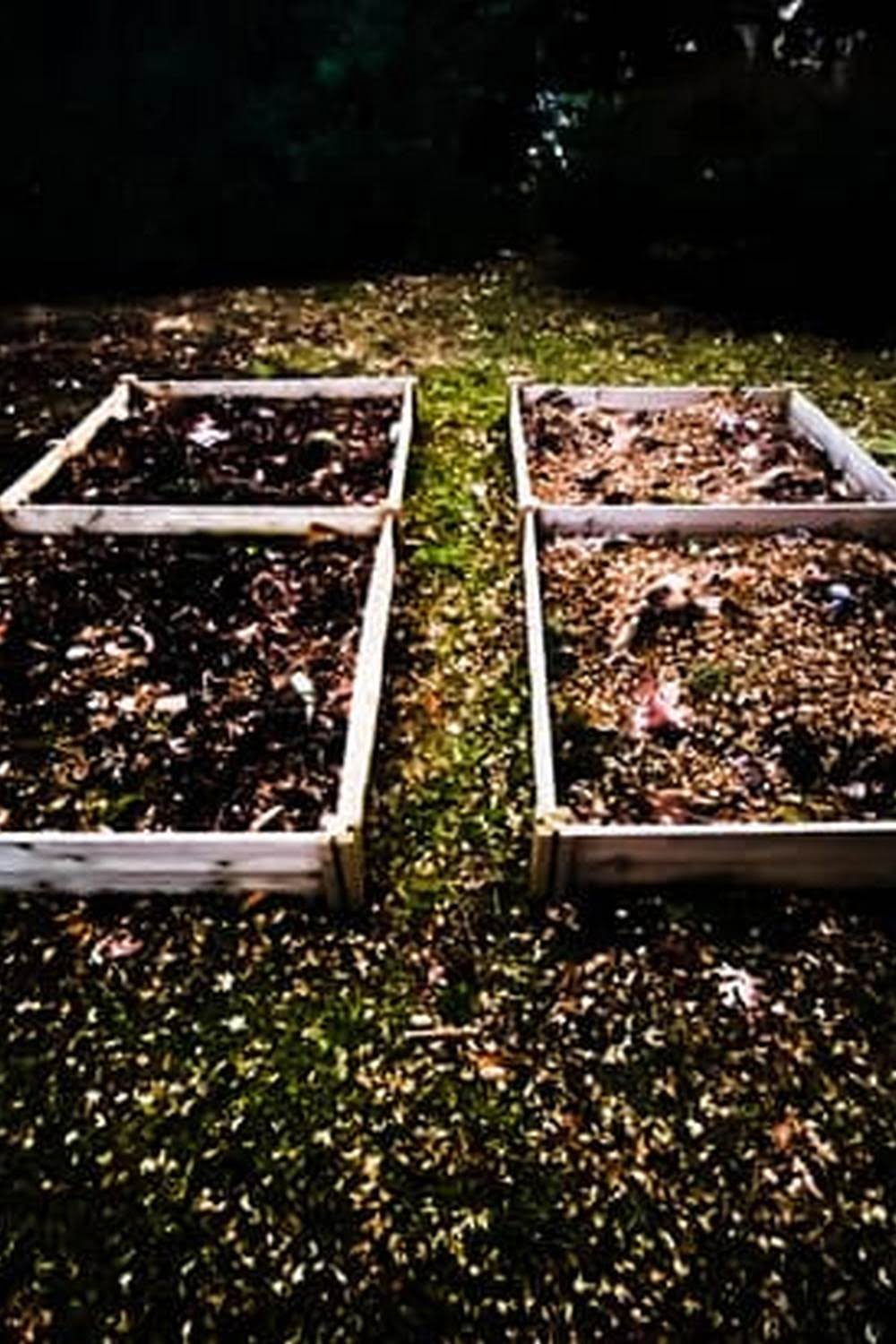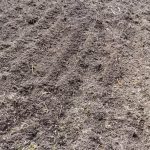Is store bought steer manure good for vegetable gardens? Store bought steer manure can be a valuable addition to your vegetable garden, providing essential nutrients and organic matter for healthy plant growth. When used correctly, it can significantly improve soil quality, leading to better yields and healthier crops.
Steer manure is a popular choice for gardeners due to its high nutrient content and ability to improve soil structure. It is widely available at garden centers and nurseries, making it convenient for those looking to boost the fertility of their vegetable plots. Additionally, store bought steer manure undergoes a composting process that eliminates harmful pathogens, making it safe to use in gardens.
In this article, we will explore the benefits of using store bought steer manure in vegetable gardens, as well as potential risks and how to properly utilize this organic amendment. Understanding the role of steer manure in gardening is crucial for maximizing the health and productivity of your vegetable plants.
Understanding Store Bought Steer Manure
Store bought steer manure is a type of fertilizer that is specifically made from the waste of cattle. It is different from other types of manure in that it goes through a composting process before being sold in stores.
This composting process helps to eliminate harmful bacteria and pathogens, making it safer to use in vegetable gardens compared to raw manure. Additionally, store bought steer manure is often mixed with other organic materials such as straw or plant matter, which further enhances its nutrient content.
When using store bought steer manure in a vegetable garden, it’s important to understand the benefits it provides. Steer manure is rich in essential nutrients such as nitrogen, phosphorus, and potassium, which are vital for the healthy growth of plants. These nutrients help improve soil structure, increase microbial activity, and enhance water retention, ultimately leading to better yields and healthier vegetables.
Unlike raw manure, store bought steer manure has undergone a heating process during composting that eliminates weed seeds and harmful pathogens. This makes it a safer option for vegetable gardens, as raw manure can introduce unwanted weeds and diseases into the soil. Additionally, the odor of store bought steer manure is significantly reduced compared to raw manure, which can make it more appealing for home gardeners who want to avoid strong smells in their gardens.
- Steer manure goes through a composting process before being sold
- It is mixed with organic materials to enhance its nutrient content
- Provides essential nutrients like nitrogen, phosphorus, and potassium
- Eliminates weed seeds and harmful pathogens
- Has reduced odor compared to raw manure
Nutritional Benefits of Steer Manure
Store bought steer manure is a popular choice for many gardeners when it comes to enriching the soil in vegetable gardens. This type of manure is known for its nutritional benefits that can help support healthy plant growth and improve overall soil quality. Understanding the specific nutrients and benefits that steer manure provides can help gardeners make informed decisions about using this natural fertilizer in their own gardens.
Rich in Organic Matter
One of the key nutritional benefits of store bought steer manure is its high organic matter content. When incorporated into the soil, steer manure helps improve soil structure, aeration, and water retention. The organic matter also serves as a food source for beneficial microorganisms, promoting a healthy and balanced soil ecosystem that supports optimal plant growth.
Nutrient Content
Steer manure is also rich in essential plant nutrients such as nitrogen, phosphorus, and potassium. These nutrients are vital for promoting strong root development, vibrant foliage, and abundant fruit production in vegetable plants. Additionally, steer manure contains secondary nutrients like calcium, magnesium, and sulfur, which are necessary for overall plant health and vitality.
Enhanced Nutrient Availability
In addition to providing essential nutrients directly to plants, store bought steer manure also helps increase the availability of existing nutrients in the soil. This enhanced nutrient availability ensures that vegetable plants have access to the necessary elements for their growth and development. As a result, using steer manure can lead to healthier, more productive vegetable gardens with higher yields.
Incorporating store bought steer manure into vegetable gardens can provide numerous nutritional benefits to the soil and plants. From improving soil structure to enhancing nutrient availability, this natural fertilizer can help gardeners achieve thriving and bountiful harvests from their vegetable crops.
Potential Risks of Store Bought Steer Manure
When using store bought steer manure in vegetable gardens, there are some potential risks and drawbacks that gardeners should be aware of. While steer manure can provide many beneficial nutrients for plants, it is important to consider the following factors before applying it to your garden.
Chemical Residues
One potential risk of using store bought steer manure is the presence of chemical residues. Some commercial livestock operations may use antibiotics, hormones, or other medications that can end up in the manure. When this manure is used in vegetable gardens, these chemical residues can potentially be absorbed by the plants and passed on to those consuming the produce.
Weed Seeds
Another drawback of store bought steer manure is the potential presence of weed seeds. While the composting process should kill most weed seeds, it is still possible for some to survive. This can result in an increased weed presence in your vegetable garden after using store bought steer manure.
Pathogens
Store bought steer manure may also contain pathogens such as E. coli and Salmonella if not properly composted or processed. If these pathogens are present and introduced into a vegetable garden, they can pose a health risk to those consuming the harvested produce.
It’s important for gardeners to be mindful of these potential risks when considering the use of store bought steer manure in their vegetable gardens. Taking precautions and being aware of these drawbacks can help mitigate any negative impacts and ensure a successful growing season.
How to Use Store Bought Steer Manure
Steer manure can be a wonderful addition to any vegetable garden, as it provides essential nutrients that help plants grow and thrive. When using store bought steer manure, it is important to follow some key steps to ensure that it is applied properly for maximum benefit.
First, prepare the soil by removing any weeds or debris from the area where you plan to apply the steer manure. Loosen the soil with a tiller or gardening fork to ensure that it is aerated and ready to receive the manure.
Next, spread a layer of store bought steer manure evenly over the prepared soil. Aim for a thickness of about 2 inches across the entire garden bed, taking care not to pile the manure up around the base of plants or near delicate seedlings.
After spreading the manure, gently work it into the soil using a rake or gardening fork. This will help incorporate the nutrients into the soil and prevent them from washing away during watering or rain. Once this is done properly over all of your garden beds, water thoroughly to encourage nutrient absorption by the soil and roots.
| Steps | Details |
|---|---|
| Prepare Soil | Remove weeds and loosen soil with a tiller or gardening fork |
| Spread Manure | Spread evenly in a layer about 2 inches thick |
| Work Into Soil | Gently mix into soil with rake or gardening fork |
| Water Thoroughly | To encourage nutrient absorption by soil and roots |
Choosing the Right Store Bought Steer Manure
When it comes to choosing the right store-bought steer manure for your vegetable garden, there are a few key tips to keep in mind. Here are some helpful guidelines to ensure that you select the best quality steer manure for your garden:
- Read the Label: When browsing through different brands of store-bought steer manure, be sure to carefully read the labels. Look for products that have been properly aged and composted, as this will help ensure that the manure is free from harmful pathogens and weed seeds.
- Check for Organic Certification: If you prefer to use organic products in your garden, look for store-bought steer manure that is certified organic. This certification guarantees that the product meets strict standards for organic farming and does not contain any synthetic additives or chemicals.
- Avoid Chemical Additives: Some store-bought steer manure may contain chemical additives or synthetic fertilizers. It’s best to opt for products that are free from these artificial substances, especially if you are aiming for an all-natural approach in your vegetable garden.
By following these tips, you can make an informed decision when selecting store-bought steer manure for your vegetable garden. Keep in mind that choosing high-quality steer manure is essential for providing your plants with the necessary nutrients while minimizing any potential risks or drawbacks.
Real-Life Experiences
Store bought steer manure can be a beneficial addition to vegetable gardens, providing essential nutrients for healthy plant growth. Many gardeners have found success using store bought steer manure in their vegetable gardens and have shared their personal experiences and success stories.
One gardener, Sarah Thompson, shared her positive experience with using store bought steer manure in her vegetable garden. She noted that the steer manure she used helped improve the overall health and yield of her vegetable plants. “After incorporating store bought steer manure into my garden soil, I noticed a significant improvement in the growth and vitality of my vegetables,” she said. “The plants were healthier, produced more fruit, and had richer flavors”.
Another gardener, John Smith, highlighted the convenience of using store bought steer manure compared to other types of fertilizers. “I found that store bought steer manure was easy to use and provided excellent results without the need for additional supplements,” he explained. “It saved me time and effort while still delivering great benefits to my vegetable garden”.
Gardeners have echoed similar sentiments about the effectiveness of store bought steer manure in promoting robust plant growth and abundant harvests. These real-life success stories serve as evidence of the positive impact that store bought steer manure can have on vegetable gardens when used properly.
| Gardener | Experience |
|---|---|
| Sarah Thompson | Improved overall health and yield of vegetable plants after using store-bought steer manure |
| John Smith | Highlighted the convenience and excellent results of using store-bought steer manure in his vegetable garden |
Conclusion
In conclusion, store bought steer manure can be a beneficial addition to vegetable gardens due to its high nutrient content and ability to improve soil quality. The nutritional benefits of steer manure, such as its rich organic matter, nitrogen, phosphorus, and potassium, make it an excellent choice for promoting healthy plant growth and enhancing overall garden productivity.
Additionally, the use of store bought steer manure can aid in improving soil structure and water retention, leading to healthier and more resilient vegetable plants.
While there may be potential risks associated with using store bought steer manure, such as the presence of pathogens or weed seeds, these can be mitigated by properly composting or aging the manure before use. By following the recommended guidelines for applying steer manure and choosing a high-quality product from a reliable source, gardeners can minimize any potential drawbacks and maximize the benefits of using this natural fertilizer.
Ultimately, the real-life experiences shared by gardeners who have successfully used store bought steer manure in their vegetable gardens serve as testament to its value. With careful selection and proper application, store bought steer manure has the potential to significantly improve soil health and nourish vegetable crops, making it a worthwhile investment for any gardener looking to cultivate thriving and bountiful produce.
Frequently Asked Questions
Is It Safe to Use Steer Manure in Vegetable Garden?
Using steer manure in a vegetable garden is generally safe, but there are a few considerations to keep in mind. It’s important to use properly composted and aged manure to avoid any potential contamination with pathogens.
Additionally, using too much manure can result in an imbalance of nutrients and may lead to excessive salt buildup in the soil. Therefore, it’s best to use steer manure in moderation and ensure that it has been properly processed before incorporating it into the garden.
Is Bagged Steer Manure Already Composted?
Bagged steer manure is typically already composted, but it’s always a good idea to double-check the packaging or product information to confirm this. Properly composted manure should have a dark, crumbly texture and should not have any strong odors.
This type of manure is safe to use in the garden as it has undergone the decomposition process that eliminates pathogens and weed seeds while also breaking down the raw materials into valuable nutrients for plants.
Do Tomatoes Like Steer Manure?
Tomatoes generally respond well to organic fertilizers like steer manure due to its nutrient-rich composition. However, it’s important not to overapply steer manure as excessive nitrogen levels can lead to an abundance of foliage growth at the expense of fruit production.
When using steer manure for tomatoes, it’s best to follow recommended application rates and consider supplementing with other natural fertilizers such as bone meal or fish emulsion to provide a balanced array of nutrients for overall plant health and productivity.

If you’re looking to get into vegetable gardening, or are just looking for some tips on how to make your current garden better, then you’ve come to the right place! My name is Ethel and I have been gardening for years. In this blog, I’m going to share with you some of my best tips on how to create a successful vegetable garden.





